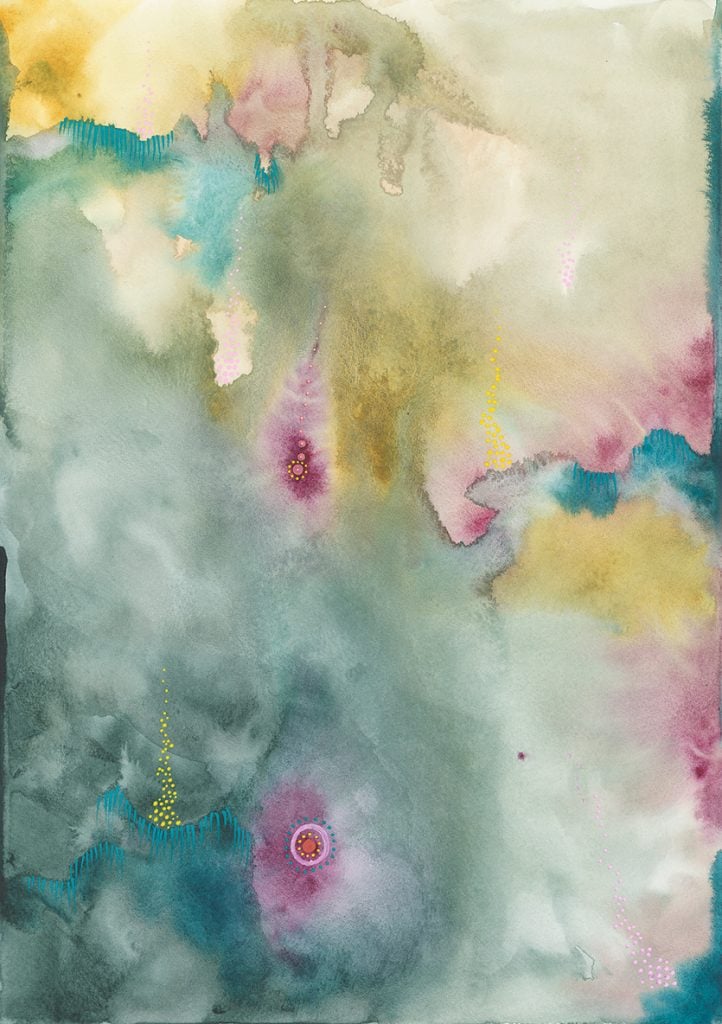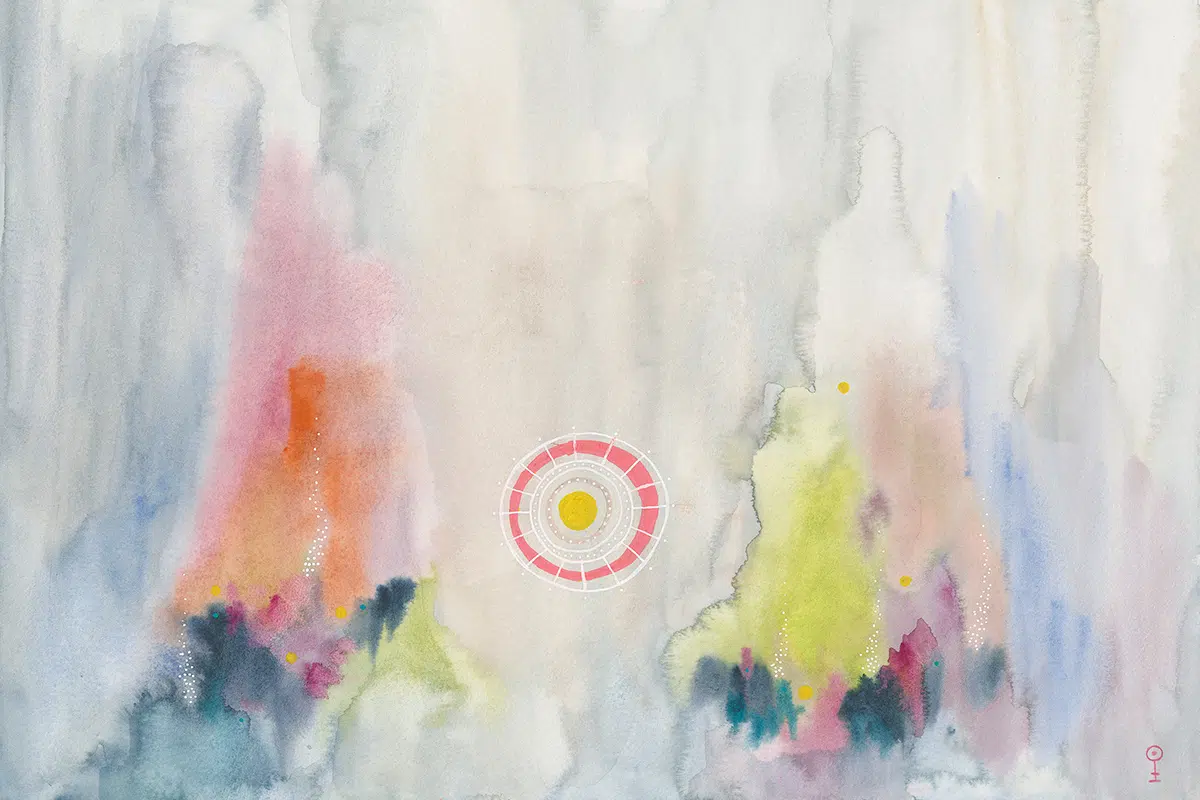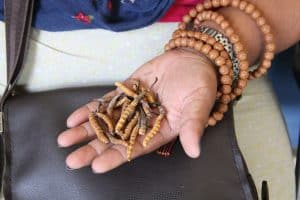Content Warning: This article discusses psychedelic therapy abuse
Violence is a phenomenon that impacts all of us, whether we know it or not—as victims, perpetrators, bystanders, saviors, allies, or—often—some combination.
An especially egregious form of harm happens when a practitioner who is supposed to be caring for someone and helping them heal, instead, causes them more trauma. While statistics on psychedelic practitioner harm are unknown as of the time of this publication, an estimated 7 to 12 percent of therapists have engaged in a sexual relationship with a client. Since this statistic comes from self-report surveys, psychologists Judith Alpert and Arlene Steinberg suggest that the true prevalence of therapist sexual boundary violations is probably much higher. The trauma of sexual violation, emotional harm, and/or financial abuse can be compounded even more in a psychedelic context.
To believe that psychedelic communities are immune to such violations, or that psychedelic practitioners will not violate the people who come to them for help, is a denial of history and a dangerous spiritual bypass. Indeed, the psychedelic renaissance is unfolding in the same waters we swim in every day—patriarchy, rape culture, white supremacy, queerphobia, ableism, colonial domination, and the carceral state.
Sex with a client is never consensual. A psychedelic therapist, guide, or shaman should not initiate or engage sexually with a client or ceremony participant. Unfortunately, stories of such violations are frighteningly common in our communities.
Laura Mae Northrup, LMFT, defines sexual abuse as a form of spiritual abuse, making it a complex wound to treat and heal from. This is ever more complex when it happens at the hands of a person who was supposed to be taking care of you.

While sexual abuse is particularly damaging, not all harm in psychedelic therapy or ceremony is sexual. Emotional abuse and physical harm are more common than you may think. This is another extremely painful and traumatizing experience for someone who was looking for healing to have to go through.
There are a variety of approaches and interventions needed to end this cycle of abuse and harm that many of our communities are embedded in. A number of people have been working to bring attention to the issue of abuse and assault in the psychedelic community for years, and we are grateful to all of those efforts, seen and unseen. In 2021, we decided to formalize a support network for individuals who have been harmed in the context of psychedelic therapy or ceremony. This article is a reflection on what we did and what we learned through this process.
How to Grow Shrooms Bundle
Take Both of Our Courses and Save $90!
Survivor support is just one approach to addressing harm in psychedelic ceremony/ therapy.
Survivor support is just one approach to addressing harm in psychedelic ceremony/ therapy. We invite folks to mobilize themselves and their communities in acquiring the knowledge, skills, and compassion to prevent violence, promote best practices and accountability for psychedelic practitioners, support survivors of harm, address harm after it has happened, and help people who have caused harm if they demonstrate a genuine desire to repair.
Psychedelic Survivors
Psychedelic Survivors was formed in October 2021 as a peer support group for anyone who has been harmed by a psychedelic therapist, ceremony leader or guide. In recent years, a number of abuses in psychedelic communities have come to light, including prominent public awareness campaigns by Oriana Mayorga, Meaghan Buisson, and Will Hall. Inspired by these efforts, and the work of numerous anonymous survivors, we created a platform of mutual aid. We hoped to create an online safe space where survivors of psychedelic therapy/ ceremony abuse and harm could come together to share with one another about their journeys.
As we considered how to best develop the Psychedelic Survivors platform to empower and assist survivors, we were inspired by the work of Tarana Burke (originator of #metoo), who suggests a 3-step plan for responding to sexual violence in our communities:
- Create publicly available resources for survivors of sexual violence and their allies
- Organize survivor leadership-training programs to teach trainees to start their own survivor-support programs
- Proliferate healing circles for community processing of sexual abuse and assault
We are hoping to emulate this wise and practical model, and we invite others to do the same in their own communities.
In October 2021, we began our work by focusing on the first step. Our colleague, Eileen Hall, created a website with a collection of web-based resources. Soon, the website will grow to include a blog section where survivors can post their writing, poetry, and art.
As we dreamt about how this project might materialize, we held a community circle where allies and interested parties could attend and share what they felt would be important for Psychedelic Survivors to take into account. We assimilated this feedback, as well as the feedback from the survivors who had already contacted us and/ or attended the first, preliminary support circle. After that, it was clear to us that our efforts would be best utilized by focusing on supporting survivors directly, while also remaining open to more occasional feedback, suggestions, and help from the allies in the larger community.
Soon after we launched the website, we began hosting monthly peer-led circles to learn what the survivors who had approached our group needed. We have listened and will continue to listen and support them.
Read: The Dark Side of Festival Culture

We also began offering Resource Gatherings—a monthly online space for survivors to receive nervous system resourcing through modalities like sound healing, compassion meditation, breathwork, skill workshops on self-care such as journaling and drawing, and poetry and song. These sessions have been donated by trauma-informed practitioners and community members who want to help the survivor group.
In order to move toward step #2, we are currently co-creating a six-month training with mentoring in one-on-one peer support, circle keeping, and other forms of survivor support. We are in conversation with Healing to Action, Am I Broken, and an experienced mediator and community advocate as we design this training with input from survivors.
Psychedelic Survivors exists to support survivors of harm in psychedelic ceremony/ therapy; the insight, desires, and needs of this group are of great importance in guiding future directions of the project. The first seats in this training will be for survivors who feel called to serve other survivors coming forward. Any remaining spaces will be open, by application, to community members who feel called to be of service. Some training sessions will be exclusively for survivors to attend.
Psychedelic Survivors has always been peer-focused. We hope to transition this group to a completely non-hierarchical model over time. Once we complete step #2, we hope that step #3 (proliferating healing circles for community processing of abuse and assault) will be a natural progression.
One of our original intentions for the project was to offer direct support to survivors of psychedelic therapy/ ceremony abuse and harm, and to offer a percentage of the funds to people who had worked to raise awareness of abuse. We launched a GoFundMe and were able to donate proceeds to some of these individuals. With the fiscal sponsorship of the nonprofit Nowak Society, we hope to be able to extend this model of direct financial support to individuals as well as groups who are engaged in the work of aiding and creating safe spaces for survivors.
Currently, the community exists as a concentric circle: at the center is a group of people who have been directly harmed in psychedelic therapy/ ceremony and are wanting to interact with other people who have also been harmed in this way. The next layer out is a circle of all the people who are directly supporting them: their loved ones, biological and/ or chosen family, therapists, doctors, legal help. One circle out from that is the larger psychedelic world, allies, and folks who are supporting the effort through donations of their time or money to support the infrastructure of the program, such as through the Resource Gatherings. As organizers of the project, our job is to move within and across these concentric circles to bring support into the center and connect with support in the outer rings.
Read: Consent is Psychedelic: Here’s Why

If someone hasn’t experienced what these folks have survived, they are considered a visitor or guest in the center space. People dipping in to offer help do so and then move back out; the people at the center are the ones with lived experience of abuse or harm in psychedelic therapy/ ceremony, and they get to decide who can visit and bear witness to their lived experiences.
To expand and grow the project, we aim to fulfill this training for the survivors—those in the center circle—starting in late autumn 2022. Source Research Foundation has generously granted us the funds to begin this process. We want the group to become equipped with the skills, confidence, and compassion to sustain itself and support itself, and to provide a safe, helpful container for new survivors who join. We welcome feedback at this stage in order to create a safe, effective and, hopefully, fun training that will help the psychedelic community move beyond the current state of crisis management.
Our hope is that this training will provide empowerment and skills for our current group of survivors who feel called to provide peer support and circle keeping for fellow survivors. Eventually, we see the project becoming a self-sustaining, egalitarian, and kind refuge or sanctuary of healing and support for people who have been betrayed and harmed in the most egregious ways. While the project currently exists online, we hope to see in-person circles and gatherings within the next year. We see the survivors themselves (with support as needed from dedicated community members) helping each other to find the best therapists, lawyers, and other resources to create the best lives for themselves moving into the future, despite the harms they have endured in the past.
Your help is essential for this mission to come to fruition. Please consider sending a tax-deductible donation here. These funds will go to paying the teachers and supporting the infrastructure of a six-month training for the Psychedelic Survivors community to grow and proliferate this peer-support model, as well as direct donations to survivors in need of funds for emergency shelter, food, supplies, therapy, and/ or whatever else the individual needs in the aftermath of a violation in psychedelic therapy or ceremony.
How to Grow Shrooms Bundle
Take Both of Our Courses and Save $90!
Survivor support is important, but there are many ways to help our communities heal from and prevent future harms. This process will take commitment, time, energy, and unity. For more information about stopping violence, mobilizing those closest to and most impacted by violence, and building resources for community-based responses to harm, check out the Creative Interventions toolkit.

DoubleBlind is a trusted resource for news, evidence-based education, and reporting on psychedelics. We work with leading medical professionals, scientific researchers, journalists, mycologists, indigenous stewards, and cultural pioneers. Read about our editorial policy and fact-checking process here.

DoubleBlind Magazine does not encourage or condone any illegal activities, including but not limited to the use of illegal substances. We do not provide mental health, clinical, or medical services. We are not a substitute for medical, psychological, or psychiatric diagnosis, treatment, or advice. If you are in a crisis or if you or any other person may be in danger or experiencing a mental health emergency, immediately call 911 or your local emergency resources. If you are considering suicide, please call 988 to connect with the National Suicide Prevention Lifeline.



